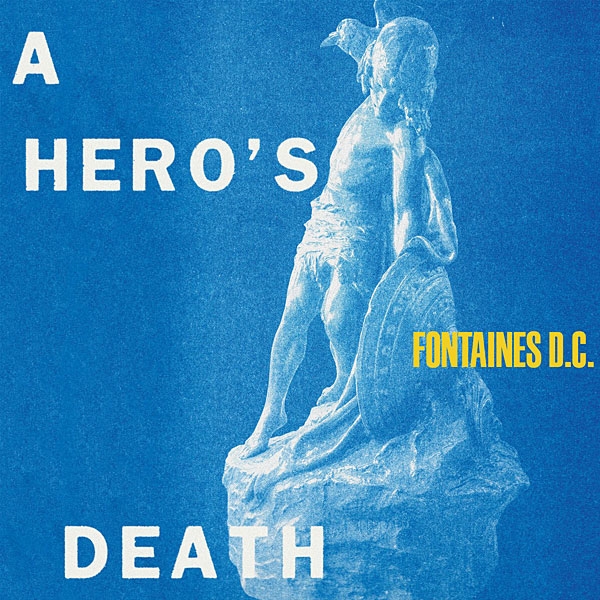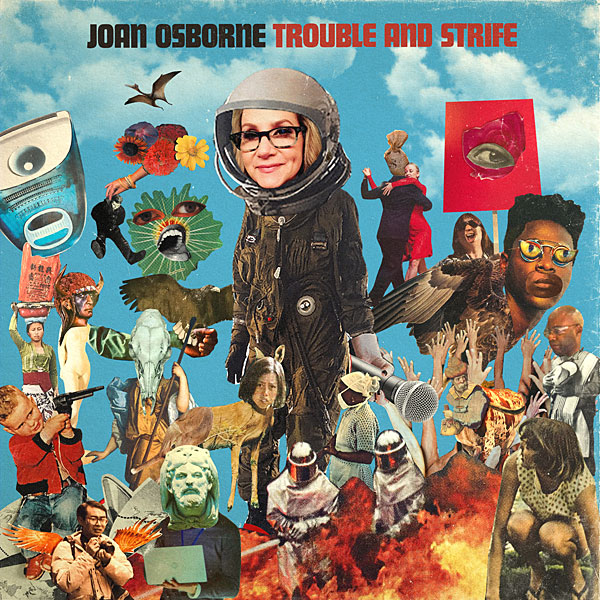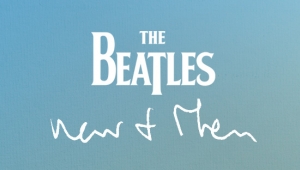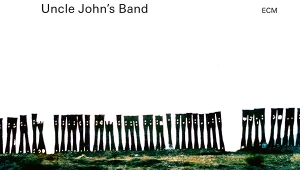| Columns Retired Columns & Blogs |
November 2020 Pop/Rock Record Reviews

Fontaines D.C.: A Hero's Death
Partisan Records PTKF2182-2 (CD). 2020. Dan Carey, prod., Alexis Smith, eng.
Performance *****
Sonics ****
Partisan Records PTKF2182-2 (CD). 2020. Dan Carey, prod., Alexis Smith, eng.
Performance *****
Sonics ****
Releasing a second album so soon after a Mercury Prize–nominated debut is the kind of action a band from a previous decade would have taken—no waiting three years between releases as is common today. But then, the brand of rock produced by Dublin's five-piece Fontaines D.C., which received much positive press for last year's debut, Dogrel, has been compared to the post-punk of the late '70s, when frequent releases were common.
Speed should not suggest undue haste, because A Hero's Death is even better than their first LP. It could easily have been in the New Musical Express list of albums of the year back in 1979 or '80, near the top of that list.
Not that they are mere copyists: To co-opt their lyrics, "that was the year of the sneer, now the real thing's here." Fontaines D.C. are genuinely of this time, and A Hero's Death is fresh and full of vim.
The production, by Dan Carey, balances the clarity required to hear the superb wordplay of the lyrics (delivered with soulful passion by Grian Chatten) and the tight interplay of the band with the rawness and edge required on an album like this. The bass of Conor Deegan III and the drums of Tom Coll drive it forward; the twin guitars of Conor Curley and Carlos O'Connell slice through. They can do anthems ("A Lucid Dream"; "I Don't Belong")—full of urgency and anger—and slower, thoughtful ballads ("No"; "Sunny").
Whether raging or reflective, full of love or defiance, all these are catchy. Feet tap, heads nod—after a couple of hearings, lips move, the listener singing along (this listener, anyway). A Hero's Death will grace many Albums of the Year lists for 2020.—Phil Brett

Paul Weller: On Sunset
Polydor. 0859860 (CD). 2020. Paul Weller, Jan "Stan" Kybert, prods.; Matt Colton, Fiona Cruickshank, Charles Rees, engs.
Performance ****
Sonics ****
Back in 1977, when I first saw The Jam, in a tiny venue with a handful of people in the audience, they were a band that wasn't easy to categorize. Were they punk or mod revivalists?
With the benefit of 40-odd years of hindsight, if punk means change and defying limitations, then Weller is the punkest of the class of '77.
Shunning the nostalgia circuit, Weller has averaged an album every other year, changing styles, covering rock, soul, funk, folk, and jazz.
But, although On Sunset has been described as his soul album, soul has always been an influence on Weller, since early days when the Jam covered Motown classics. Still, it's easy to see why it's being so labeled: Not since the Style Council has an entire album of his been this soulful; I for one am happy about that. Weller not only has a great voice for it, but soul fills his, well, soul.
The whole package—production, sleeve design, the songs themselves—radiates positivity, flowing through the disparate tones of the genre: "Mirror Ball" and its 1970s disco leanings; "Baptiste" 's great interplay of Hammond organ (from Style Council's Mick Talbot), Weller's guitar driving the Stax sound; the lush orchestration of "More," and the title track, a Terry Callier–esque ballad with a nod to "My Sweet Lord." Weller spreads his wings and soars. It's simply marvelous.
Weller has achieved a feat, which only Paul McCartney, John Lennon, and David Gilmour previously managed, of having a UK number 1 album in five consecutive decades.
Paul Weller was thrilling when he debuted in 1977 with the Jam's "In the City." He still is.—Phil Brett

Jenny O.: New Truth
Mama Bird Recording Co. (16/44.1 kHz stream on Qobuz). 2020. Kevin Ratterman, prod. and eng.
Performance ****
Sonics ***½
Los Angeles–based singer-songwriter Jenny O. (Jennifer Ognibene) has just released her fifth recording—her third full-length album—of original material. It's as inventive as it is easy on the ears. Her formal education in music composition and jazz is as evident in these sophisticated creations as her singing.
One of the album's many features is its array of textures and sonic combinations, with each instrument distinct and purposeful in the mix. It makes for a diverting experience, different from many indie songwriter albums, which can seem like the same track over and over until you've listened carefully a few times. This accomplishment is all the more impressive because Jenny O. is a one-woman band, playing guitars, bass, Wurlitzer organ, percussion, and synthesizer. Producer Kevin Ratterman helps out on drums.
A boldly original melody writer, Jenny O. takes advantage of the contrasts in her own voice, from a ringing top end to a gritty lower range. In "Hard to Say," she wanders and leaps between those extremes within each line. "Old Habits" uses a more restrained span, relying instead on vocal harmonies and retro Wurlitzer organ effects. "What About That Day" opens with a simple acoustic fingerpicking pattern and multiple-unison voice tracks that split and begin imitating each other.
Jenny O.'s songs often have a laidback, '60s folk-rock sensibility reminiscent of the Laurel Canyon scene. One can imagine The Mamas and the Papas singing the album's first cut, "God Knows Why." The harmonies she builds against the melody are her arrangements' essential element, culminating in the densely layered "Seek Peace," which ends the album on a rich and calming note.—Anne E. Johnson

Joan Osborne: Trouble and Strife
Womanly Hips Records 50481 (CD). Joan Osborne, Nick Govrick, prods.; Matt Shane, Ross Gower, Vance Powell, Alex DeTurk, engs.
Performance ***½
Sonics ****
Opening with her spirited roots rocker "Take It Any Way I Can Get It," songwriter/singer Joan Osborne lays the ground rules for her self-produced 10th studio album, Trouble and Strife. "I'm still survivin'/I got to be dancin'"..."[I] try to take a stance in/get a little romance in," she sings. On these 10 originals—her first new material since her 2014 album Love and Hate—Osborne frankly expresses views on topics ranging from gender conformity ("Boy Dontcha Know") to down-home food ("Meat and Potatoes").
It has been 25 years since Kentucky-born, New York–based Osborne broke into the mainstream with her delicious debut, Relish, which featured such catchy tunes as "St. Teresa" and "One of Us." These new Osborne songs aren't as indelible as those were, but she can still cook up a Dylanesque narrative, as on the title track, settle into a hopeful ballad as on "Whole Wide World," get incensed about corruption as on "Hands Off" (featuring Jack Petruzzelli's blitzkrieg guitar), reflect on the culture of misinformation as on "That Was a Lie," and tell a poignant tale about immigration as on "What's That You Say," with refugee Ana Marie Rea talking in Spanish about her suffering and Nels Cline providing support with six-string texture. And then there's "Never Get Tired of Loving You," an uplifting tribute to Osborne's teenaged daughter.
Cline brings more lightning on the finale, the R&B rockfest "Panama," where Osborne ponders blowing town for a land less crazy than what she sees around her at this moment. She's all about survival, with dancing and romancing to buoy her forward.—Dan Ouellette
- Log in or register to post comments




































